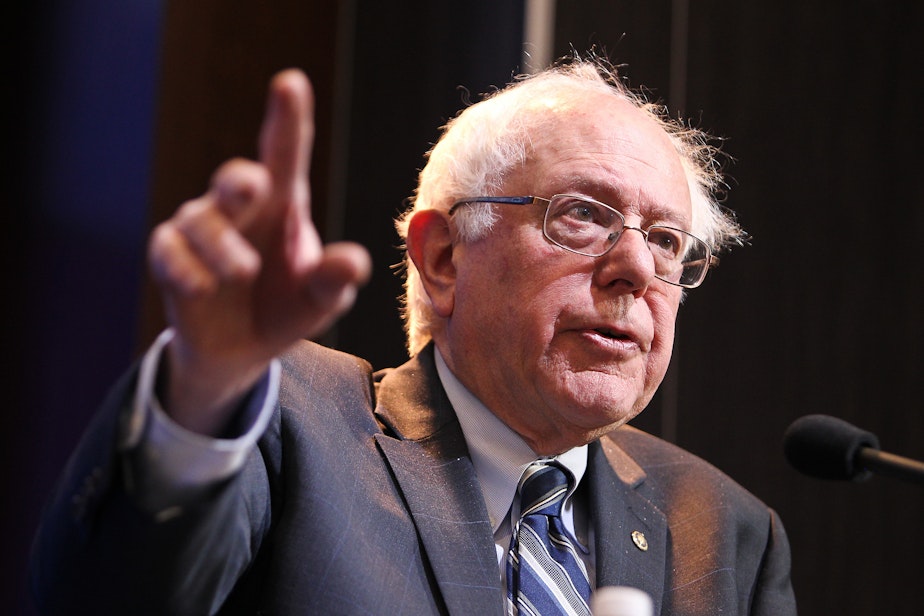Will Washington State Embrace Bernie Sanders?

Bernie Sanders, the independent senator from Vermont, hasn’t minced words calling for a political revolution, which could appeal to Washington’s liberal pockets.
“Liberal progressive candidates generally do well here, and I would say that would bode well for Bernie Sanders' prospects,” University of Washington political science professor Mark Smith told KUOW’s Ross Reynolds.
Sanders hasn’t visited Washington state yet, but this week state backers of Sanders' campaign scheduled 120 meet-ups.
Although Sanders agrees with his opponent Hillary Clinton on many issues, there are notable differences.
“Bernie Sanders is promising free college tuition; that's a pretty big deal,” Smith said. “He's wanting big cuts in military spending, and that's not something you're going to see Hillary Clinton proposing.”
Sponsored
Smith likened Sanders’ bid to Howard Dean’s 2004 presidential campaign. Dean, a Democrat also from Vermont, ran on a strident anti-war message.
“That gave him a lot of entree into core Democratic constituencies and he rode that to national prominence,” Smith said. Dean was the Democratic front runner before falling and eventually losing out to John Kerry. “But he was from the more activist, more hard core element of the Democratic Party.”
Washington state relies on the caucus system for its primary, which could also benefit Sanders. Caucuses are more time-consuming than simply filling out a ballot and mailing it. Voters gather at neighborhood meeting spots and choose a candidate.
”The fact that it requires a higher commitment tends to attract people with more passionate views, which for the Democrats means people who are farther left,” Smith said. “And that's Sanders' core constituency, so he plays very well in a caucus system relative to a primary system.”
The caucus system favored Barack Obama, for example, who soundly beat Clinton in the 2008 primary in King County. He collected 72 percent of the vote; she got 27 percent.
Sponsored
To gauge whether Sanders’ popularity is growing, Smith said to watch the size of his crowds.
“That tells you who's willing to go out and hear a candidate speak and express their support for it,” he said.
And then there’s fundraising.
“A lot of candidates historically have run out of money and have difficulty competing,” Smith said, “but in Sanders’ case, his fundraising has been a lot better than most people. He’s raising a lot of money from small donors. And so that tells me he will have enough money to compete for some of the later contests.”
Produced for the Web by Isolde Raftery.
Sponsored
Photo credit: "The Honorable Bernie Sanders," by Brookings Institute on Flickr (CC BY NC ND 2.0)
This piece originally aired on July 29, 2015.

